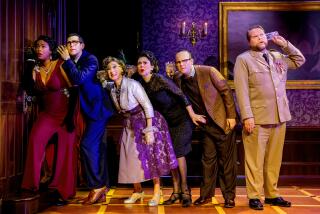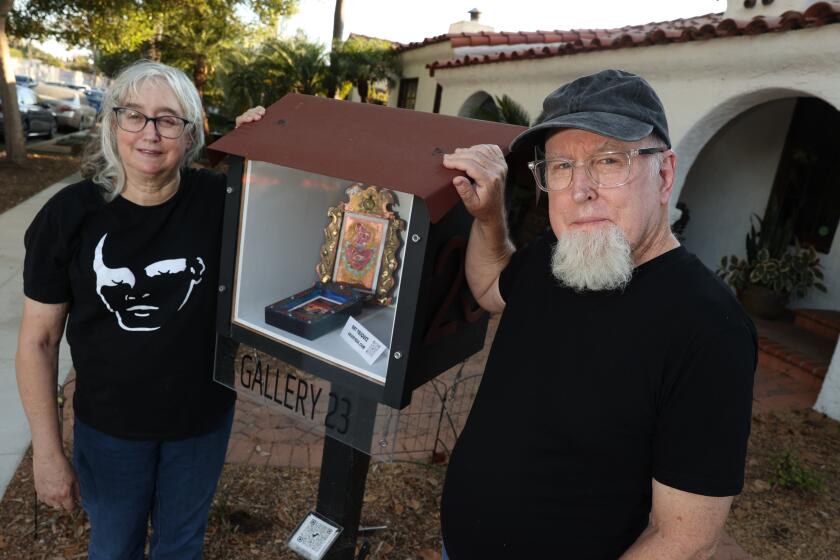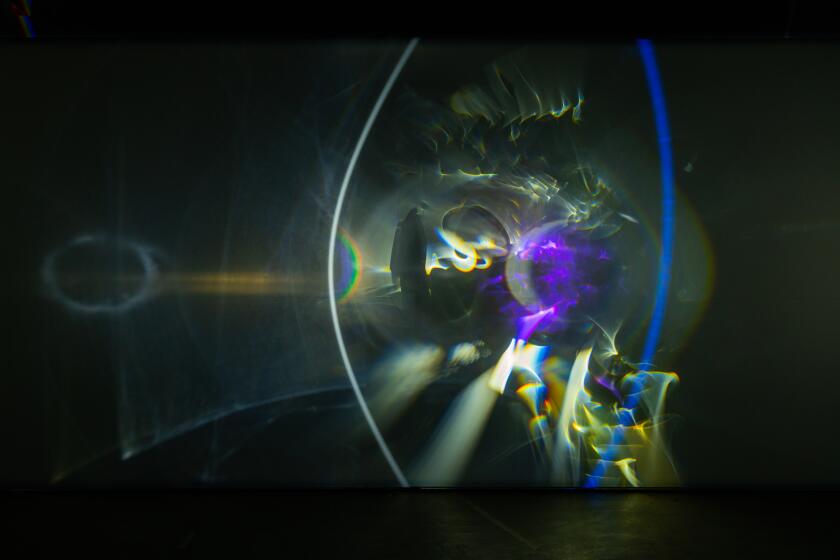Review: Christine Brewer is asked to soar with Pasadena Symphony
The Pasadena Symphony’s Saturday afternoon concert at the Ambassador Auditorium afforded many pleasures: soulful playing by the orchestra itself; the skilled, sustained and often inspired conducting of Michael Stern (a late substitute for the symphony’s music director, James DePreist, who is recovering from heart surgery), and the enveloping acoustics of a fine, mid-sized concert hall.
Still, my guess is that many in the audience came specifically to hear the “Four Last Songs” of Richard Strauss, as sung by Christine Brewer. Despite their popularity on record -- more than a dozen versions are available -- this wonderful music is rarely presented in concert. And with good reason, for the “Four Last Songs” are immensely difficult to pull off in live performance.
The soprano is called upon to soar over a large orchestra for 20 minutes, which is hard enough already if she is supposed to be singing about love, lust, vengeance or other subjects that typically inspire composers to crank up the volume. But the “Four Last Songs” offer a more formidable challenge, for their subject is human frailty, the exact reverse of what is demanded from the soloist. They are expressions of gratitude for a long life (the composer was in his mid-80s when he set to work) and a fulfilled, comfortable resignation toward impending death. They should be sung in the spirit of a last leaf on a sun-splashed autumn day; there is no more fully adult, meticulously planned and ecstatically fashioned leave-taking in the repertory.
Brewer is ideal in this repertory; she has a huge voice and it remains fresh and lustrous in all registers. Only in the opening song, and very briefly, did she show any tendency to blast. The rest of the cycle was sung with appropriately herculean serenity. Much credit must be given to Stern, whose smart, proportionate leadership kept the orchestra in a careful abeyance that never sounded muffled.
Wagner’s “Dawn and Siegfried’s Rhine Journey” from “Götterdämmerung” proved an engrossing curtain-raiser, as it usually will. This was my first encounter with the Pasadena Symphony and I was impressed by both the blend of the ensemble and the distinctly characterized and mostly immaculate solo work from the first desk players. Stern made much of the restless yearning in Wagner’s score, keeping it moving urgently throughout, never quite satiated.
The program closed with Dvorak’s Symphony No. 8 in G. Hearty, eager, immediately familiar, extroverted without undue aggression, sentimental without neurosis, the symphony made for good company and, while I can’t imagine that I’ll think of it again until the next time I hear it, it will likely make for good company then, too.
ALSO:
Opera couples debate dual role as lover and colleague
Music review: Joshua Bell puts orchestra in fast lane
Artists, actors creatively reengage with ’92 L.A. riots, ‘Twilight’
More to Read
The biggest entertainment stories
Get our big stories about Hollywood, film, television, music, arts, culture and more right in your inbox as soon as they publish.
You may occasionally receive promotional content from the Los Angeles Times.










